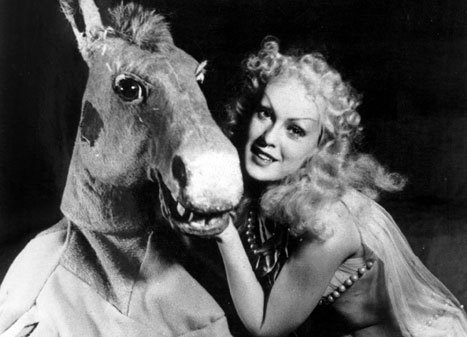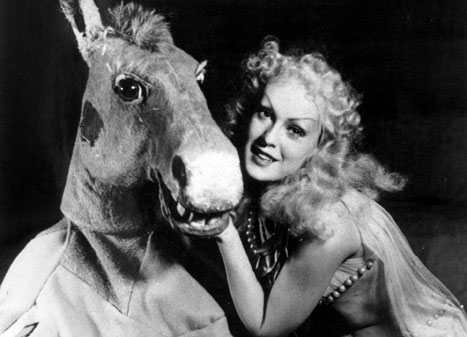I received my review copy of Stewart Buettner’s The Shakespeare Manuscript when I was in the middle of The Tragedy of Arthur, which made for a very interesting opportunity to compare two different angles on the same topic – the fictional discovery of a new Shakespeare play. I informed Stewart that I was reading Arthur already, to avoid any feeling that my opinions of the one would cloud the other, but he had no problems with my reading them at the same time. This actually makes the fourth book on this topic that I’ve read – see also Interred With Their Bones and The Book of Air and Shadows.
So, how does Buettner’s novel get things rolling? April, the agoraphobic daughter of a rare books dealer, receives a package. Inside, among other papers, she finds Hamlet, King of Denmarke. Not prince – King. This is not the Hamlet we all know and love. This appears to be some other Hamlet story, perhaps even the legendary Ur-Hamlet, a previous chapter in the Hamlet story.
The package came from her father, Miles, who is out of the country traveling on business. After an unfortunate encounter with some muggers, Miles is left with a nasty case of amnesia and cannot remember how and why he even came by the manuscript. Is it even real?
Unable to get in touch with her father (who sits in a hospital bed as an unidentified “John Doe” until he gets his memory back), April, an actress herself, contacts Avery LeMaster, her former director, to be her expert on the authenticity of the play.
Avery immediately declares it legitimate simply by reading it. He then convinces April to let him have it – the only copy of what could be the rarest manuscript in the world. He races back to his own group of players, announces “We’re performing this,” and then proceeds to lose it.
The majority of the book is not about the play, but the players. They all have history, and I lost track of who had slept with whom (not unlike my own college theatre troupe :)). Emotions run high, and had there been more trailers, I’m sure that most of the cast would have spent most of their time in them. But professionals they are indeed, and the author gives us plenty of opportunity to see them act. What exactly was Hamlet’s relationship to his father, and to Ophelia? Buettner offers a number of possibilities. In doing so, he smartly focuses not on some imaginary text that he had to make up for the purposes of his story, but on the interactions between his actors. How does Ophelia feel about what Hamlet is saying to her? What does that do to her performance?
The play’s authenticity does come up, of course – eventually. Will the original be recovered? Can it be properly authenticated? Can Miles, who does recover from his amnesia, take on the detective work of figuring out where and how he got it in the first place? Who exactly holds rights to the play, and what does that do to the possibility of performing it?
I liked the core idea – imagine a prequel to Shakespeare, and then focus a group of actors on nothing but performing that story. It would be easy enough to do in real life, of course, if you just went ahead and wrote your own (for instance, something like Updike’s Claudius and Gertrude comes to mind). But what if the play was actually written by Shakespeare, and you were the very first to perform it? Your interpretation would set the stage, literally, for generations to come. No hypotheticals. No discussions in blog comments about whether Gertrude was fooling around with Claudius on the side. Now you’d have to pick an interpretation and sell it on the stage. That’s cool.
Most of the rest of the story – the intrigue stuff? I could live without. Everybody’s got skeletons in their closet. Somebody’s on drugs. Something horrible happened in April’s family that she doesn’t talk about – she’s got one estranged brother and another that we have to assume is dead. She was also the greatest young actress of her generation before “the event” that sent her off the stage and into her self-imposed exile. Can she make a triumphant comeback? Miles, meanwhile, doesn’t really have amnesia – he’s hiding something.
I appreciate that the book has to appeal to a broad audience. Where I see “a book about the discovery of a new Shakespeare play, that happens to be a mystery”, the rest of the world sees “a mystery about the discovery of a new Shakespeare play.” But there are moments where I think maybe the author spread himself a bit too thin. April’s agoraphobia comes and goes. One minute she can’t be near other people, the next minute she’s sleeping with someone. She’s accused of racism at some point as well when her black co-star does not understand her hesitance, but that goes nowhere.
(I also found Miles’ amnesia oddly amusing, when he claims to forget the plot of Othello. He knows it’s by Shakespeare, he just forgot what it’s about. I’m reasonably sure that amnesia doesn’t work that way. 🙂 )
In the end, this book is about its people, and for that I’m glad – I’ve often said that this is how I like my Shakespeare. I like to talk about the characters as if they are real, and not just words strung together on a page. There is not a great deal of academic detail in this one about the painstaking details of authenticating a Shakespeare play (see “Arthur”, above). Nor are there any shoot-outs, car chases, or grisly murders. There’s a bunch of actors on retreat out in the middle of nowhere, and their director shows up with a play that might be Shakespeare. Go. You know, it even occurs to me as I write that summary that the entire book could have been written like that, from the perspective of one of the actors. Start with the director showing up with the play. Who cares where he got it, or what’s happening to authenticate it. You’re an actor, you’ve just been handed the biggest challenge of your career, and you’ve got a month to do nothing but live and breathe it. What would you do?


